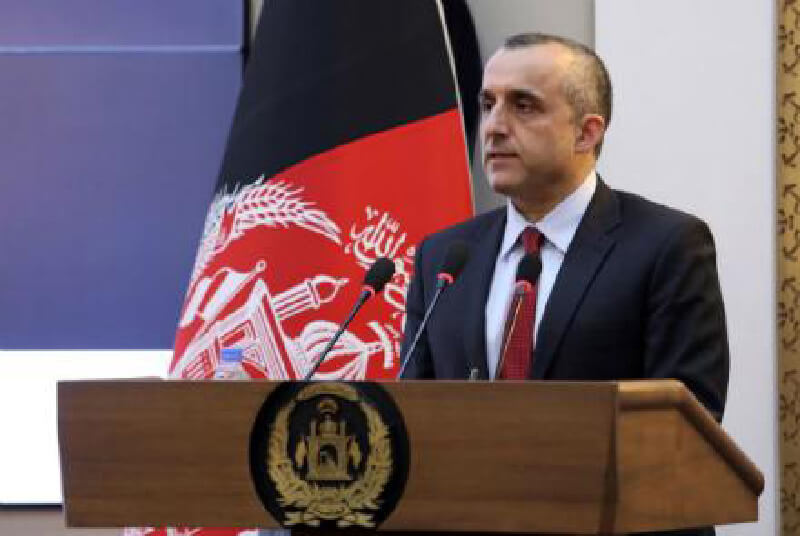- By Zsuzsa Anna
Ferenczy
After seven long years of negotiations, Brussels and Beijing on Thursday last week signed a Comprehensive Agreement on Investment (CAI). The CAI would ensure EU investors achieve better access to the Chinese market and compete on a better level playing field in China, the European Commission said. On the European side, the market is already open, and the agreement would preserve sensitive areas for the EU, namely in the fields of energy, agriculture, fisheries, audio-visual and public services.
European Commission President Ursula von der Leyen said that Europe “is attached to reciprocity, level playing field and values,” adding that the agreement would bring more balanced trade and business opportunities. This is in line with the commission’s 2019 report EU-China — A strategic outlook, in which the EU committed to seek more balanced and reciprocal economic relations.
In the report, the EU labeled China a “systemic rival promoting alternative models of governance,” but remained committed to a comprehensive strategic bilateral partnership. Against the backdrop of a toughening stance in the EU’s approach to China, and given Beijing’s increasing assertiveness in the region (and globally), as well as the US-China geopolitical rivalry, it is obvious that the timing of such a deal with China is controversial.
It has drawn criticism from within and outside of Europe. The disappointment has been even more tangible, as it follows the praise for Europe for finally waking up to China’s mercantilist approach to the bloc, while trying to get its own house in order.
In 2019, French President Emmanuel Macron called for an end to the EU’s naive relations with China, urging a unified strategy instead of national policies. The Franco-German engine, the driving force behind European integration, has faced increasing criticism for lacking strategic depth; Macron’s visionary ambition to relaunch Europe and defend the continent’s sovereignty has not exactly found a partner in a more pragmatic German leader.
In this context, many question whether striking a deal with China is the right path for the EU to become “geopolitical” and achieve its strategic autonomy. Others are convinced Brussels committed a strategic mistake, placing interests over values. Inside the EU, member states also diverged, with Germany pushing for the deal and Poland suggesting early consultations with the incoming administration of US president-elect Joe Biden were needed.
EU member states’ divergence on China should come as no surprise. The bloc’s China policy has always been half-hearted and fragmented. Speaking with one voice with China has been the EU’s biggest challenge. Germany, China’s most important trading partner in Europe since 2016, has long been perceived as Europe’s China weak spot. Pushing the deal through under the German Council presidency has confirmed to many that Berlin remains committed to protecting its lucrative economic relationship with China at the expense of values, including human rights.
With the signing of the CAI, the EU has spoken with one voice. The question is, is this the right voice? Is the unity that the CAI rests on principled and sustainable, supporting strategic autonomy?
Headlines in the US say that the EU struck a deal with China, “despite US concerns.” In the context of transatlantic relations, many are hoping to see a return to normal following a tense relationship due to US President Donald Trump’s abrasive style. Many hoped to bring more cooperation and coordination on their China policies, seeking to address Beijing’s efforts to undermine democratic governance.
Indeed, the EU and the US share a long list of concerns on key issues related to China’s behavior: forced technology transfer, subsidies and state-owned enterprises. These are the structural issues that the agreement aims to address, if implemented effectively, which remains to be seen. However, the transatlantic allies diverge on how to balance relations with China. The trade war that Trump launched against China, without any coordination with European counterparts, has hurt the US economy without solving the underlying economic concerns that the US and Europe share.
It is now crucial that the US and Europe coordinate their China policies, prioritizing common challenges. Cooperation must remain at the core of the EU’s China policy, but Brussels must use the CAI as leverage over China and work with the US in addressing the lack of reciprocity they both face.
Whether an inch closer to strategic autonomy, or a strategic mistake, striking the agreement should serve as a strategic opportunity for Europe to protect its interests while championing openness. More importantly for Europe’s geopolitical future, the CAI should inspire discussions in Brussels on an investment deal with Taiwan, as the European Parliament has long advocated.
The EU is already the biggest investor in Taiwan, but Taiwanese investment in the EU remains shockingly low. A bilateral investment agreement would benefit both, particularly in the reconfiguration of global supply chains in a post-pandemic world.
For seven years, Beijing has used the CAI negotiations to stifle discussions on an EU-Taiwan investment agreement, or anything that would help warm up EU-Taiwan relations. Five years have passed since the European Parliament first urged the commission to start exploring a bilateral investment agreement with Taiwan.
The next step should be for the EU to initiate an official impact assessment to prepare for the launch of negotiations of an investment agreement with Taiwan. If the two sides do not build on the momentum of the EU-Taiwan Investment Forum held in September last year, it will be a missed opportunity.
The EU and its member states must see Taiwan on its own merit, and acknowledge the contribution it can bring to the world, as it proved through the successful containment of COVID-19.
Zsuzsa Anna Ferenczy is a research fellow at Academia Sinica, an affiliated scholar in Vrije Universiteit Brussel’s political science department and a former political adviser at the European Parliament.
Comments will be moderated. Keep comments relevant to the article. Remarks containing abusive and obscene language, personal attacks of any kind or promotion will be removed and the user banned. Final decision will be at the discretion of the Taipei Times.














